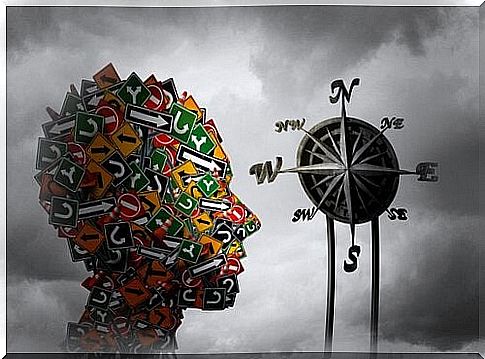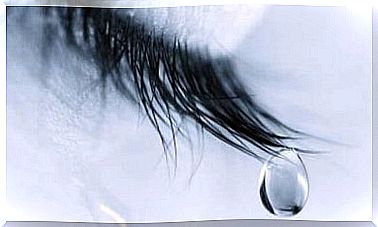The Question Of Psychology Is A Science

Many people wonder if psychology is a science. They say it’s too subjective. In the same way, they say things like “I have a talent for psychology. I can look at a person and tell them how they are ”. Confirmations like these show us how confused people are about this discipline. In fact , most of the population does not know what it means to study psychology.
In order to conclude whether psychology is a science or not, we must first understand what a science is. Many people believe that science is the undisputed bearer of truth since it observes reality and describes it. However, this definition is incorrect.
The question of psychology is a science
What is a science?
A science is a branch of knowledge that seeks to describe, explain, predict and modify a domain of reality. When it comes to psychology, it is about human behavior and cognitive processes. Science has a practical goal. It tries to understand certain events in order to use them to our advantage. For this purpose, it has its own methodology called the scientific method.

The scientific method is a hypothetical deductive strategy used to draw conclusions. It consists of a number of steps:
Problem statement
It is the first step in the scientific method. It consists of searching for a problem whose cause or reason is still unknown. An example of this might be asking why all things fall to the ground or how people learn.
Hypothesis
Through observation, deduction and bibliographic review, we can develop a number of hypotheses. This consists of theorizing how the problem arises. Hypotheses are not true or false. They are opportunities waiting to be tested.
Testing
Once we have the hypotheses, the next step is to test them to prove them. An experiment must be designed to verify the hypotheses. This experiment can be performed in many ways. For example, through research, direct observation and experimental manipulation.
Data analysis
After the experiment, we continue to statistical analysis of the data. If this data shows that the hypotheses are incorrect, we discard them. But if we have not been able to disprove them, they are considered proven.
However, it is important to understand that we can never fully prove a hypothesis because we do not have access to all the data. The term “proven” only indicates that we have not been able to disprove it yet.
Communication of the results
It is the most important part of the scientific method. It would not make sense to discover something and not share it. By communicating the results, we make people more knowledgeable. In addition, it allows us to solve new problems. Furthermore, by sharing the results of an experiment, other researchers can recreate it and discover more evidence.
The key factor in this process is to understand that science attacks its own hypotheses in order to reduce errors and avoid confirmatory dogmas. Science is in constant verification, since it always leaves room to doubt the tested hypotheses. Thus, it is a dynamic method that adapts to new data that arises.
Another important topic is the difference that some people make between “hard science” and “light science”. Biology, physics and chemistry fall under “hard science”, which is science that seems more objective and easily observable. However, it is a mistake to think about it. For example, just as we suggest through observable events that gravity exists in physics, we do the same with anxiety, emotions, or learning processes in psychology.
In any case, science does not conclude what is happening, but why it is happening. And to do that, “light science” and “hard science” use the same method.
Intuitive psychology
All of us form intuitive theories about how the world works. This helps us maintain control and predict what will happen. Therefore, we have an intuitive psychology that tells us how we think others behave and why they do it. However, it is a serious mistake to believe that these beliefs are correct.
Intuitive psychology is based on mental shortcuts formed by previous experiences. Depending on our education, experience and personal history, we have certain ways of perceiving what is happening around us. These judgments are completely subjective. Therefore, they are a part of our lives, but have nothing to do with the scientific discipline of psychology.
Scientific psychology
Scientific psychology is the exact opposite of intuitive psychology. In particular, it does not rely on beliefs or judgments to explain human behavior. Instead, it uses the scientific method and experiment to collect objective data and interpret it. Psychological concepts are born as a result of research conducted.

Knowing the difference between meaning and interpretation will help us understand that psychology is a science. Opinions are beliefs we have because of our experiences. For example, we can say that people are good, and that society makes them corrupt because our experiences are consistent with this idea.
On the contrary, interpretation consists of analyzing, interpreting and explaining an event through scientifically obtained data. Let us continue with the previous example. If data cannot prove that people are good or bad, we must interpret it from a different perspective that integrates all available information.
Scientific psychology is not a matter of opinions. We cannot discuss it on the same terms as intuitive psychology. The first is based on the interpretation of the evidence obtained. Therefore, it is about giving meaning to available information. The only way to disprove the results of a scientific investigation in psychology is with objective data that disproves it.
Why do some people disagree that psychology is a science?
We have seen that psychology uses the same methods, and that it has the same validity and reliability as other subjects. But why do many people doubt whether it is a science or not? Let us examine three of the main reasons why this happens.
First, the concept of science still confuses many people. Most of the population has a very poor definition in mind. This, together with people’s ignorance of the instruments used to measure behavior and mental processes, leads people to classify psychology as subjective and unscientific.
The second reason is the pseudo-scientific practice that comes from psychology. Unfortunately, many people use the term “psychology” to refer to practices that do not use the scientific method. Consequently, a large part of the population incorrectly relates pseudoscience to psychology, but in reality they have nothing to do with each other.
Psychology is a science

Finally, psychology studies people. In physics, chemistry or other sciences, the results hardly “involve” people and they are accepted without resistance. But studying people is different. If the results go against our intuitive beliefs, we will quickly try to resolve this cognitive conflict. It is easier to ignore the evidence presented than to restructure our faith.
Conclusion: psychology is a science
If someone asks you if psychology is a science, the answer is a resounding YES. It is a very important discipline that allows us to understand ourselves both individually and as a group.








